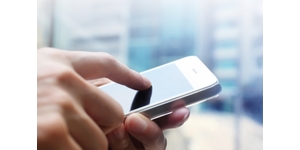
Cell phones have become an integral part of our lives. This is especially true for lawyers. Whether you are answering a client’s email or conducting a quick Westlaw search, smart phones are a necessity. Our reliance on technology, however, creates problems. Perhaps one of the greatest concerns in the legal field is how our reliance on technology impacts a lawyer’s duty of confidentiality. See La. Rules of Prof’l Conduct, r. 1.6.
Smart Phones and the Duty of Confidentiality
The New York State Bar Association recently addressed a lawyer’s duty of confidentiality in regards to smart phone apps which access the contacts on a lawyer’s cell phone. See N.Y. State 1240 (2022). The inquiring lawyer posed the following question:
When the inquiring lawyer downloads or accesses an app on his smartphone, the lawyer is sometimes asked whether the lawyer gives consent for that app to access the lawyer’s “contacts” on the smartphone. The lawyer’s contacts include clients in criminal representations. May a lawyer consent for an app to access contacts on the lawyer’s smartphone that include the lawyer’s current, former or prospective clients?
The New York Bar Assocation opined as follows:
If “contacts” on a lawyer’s smartphone include any client whose identity or other information is confidential under Rule 1.6, then the lawyer may not consent to share contacts with a smartphone app unless the lawyer concludes that no human being will view that confidential information, and that the information will not be sold or transferred to additional third parties, without the client’s consent.
The opinion explains “[a] contact could be confidential because it reflects the existence of a client-attorney relationship which the client requested not be disclosed or which, based upon particular facts and circumstances, would be likely to be embarrassing or detrimental to the client if disclosed.” See id. at ¶ 9. The advisory opinion further provides several factors that a lawyer should consider in determining whether any contacts are confidential:
(i) whether the contact information identifies the smartphone owner as an attorney, or more specifically identifies the attorney’s area of practice (such as criminal law, bankruptcy law, debt collection law, or family law); (ii) whether people included in the contacts are identified as clients, as friends, as something else, or as nothing at all; and (iii) whether the contact information also includes email addresses, residence addresses, telephone numbers, names of family members or business associates, financial data, or other personal or non-public information that is not generally known.
See id. at ¶ 10.
Conclusion
Lawyers have a duty to protect confidential client information. See La. Rules of Prof’l Conduct, rule 1.6(c). (“A lawyer shall make reasonable efforts to prevent the inadvertent or unauthorized disclosure of, or unauthorized access to, information relating to the representation of a client.”) This obligation is not diminished merely because the lawyer utilizes electronic means to store client’s information. “If a lawyer determines that the contacts stored on his smartphone include the confidential information of any current or former client, the lawyer must not consent to give access to his contacts to an app, unless the attorney, after reasonable due diligence, including a review of the app’s policies and stated practices to protect user information and user privacy, concludes that such confidential contact information will be handled in such a manner and for such limited purposes that it will not, absent the client’s consent, be disclosed to additional third party persons, systems or entities.” See id. at ¶ 11.
